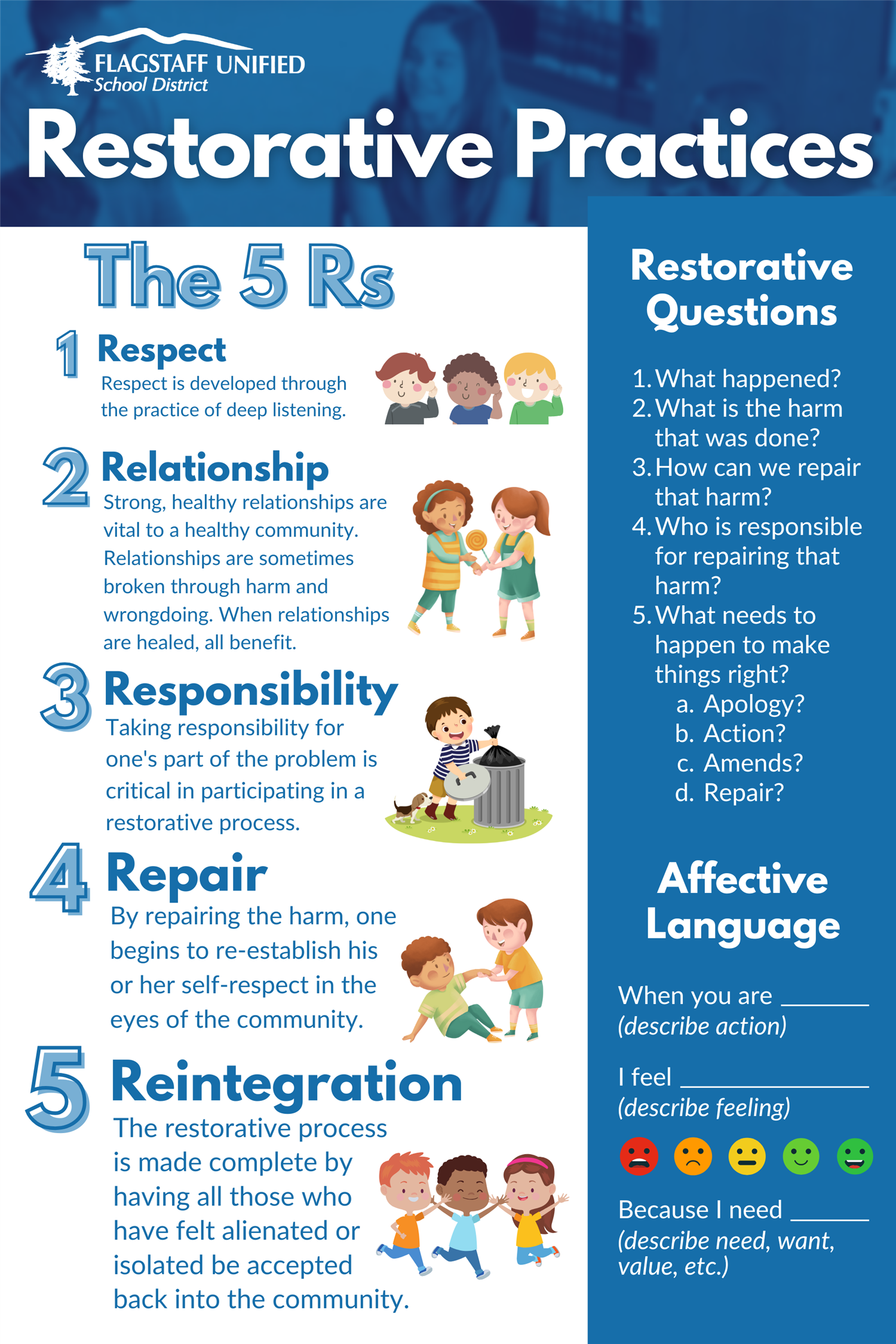Student Support Services
Page Navigation
- Welcome & Contacts
- Parent & Teen Supports
- Staff Mental Health Promotion
- Homebound Services
- Mandated Reporter - DCS Reporting Procedures
- Restorative Practices
- Counseling
- Section 504
- Student Behavior & Discipline
- Positive Behavior Intervention and Support (PBIS) Overview
- Health Services
- Panorama Education
Restorative Practices
-
Restorative Practices provide a comprehensive framework for fostering a positive school community built on cooperation, mutual understanding, trust, and respect. These approaches not only proactively strengthen relationships but also offer an inclusive way to address conflict and disciplinary incidents. By bringing together all those affected by a situation, restorative practices focus on repairing harm and restoring relationships, ensuring that the entire school community benefits from a culture of accountability and support.
Rather than relying solely on punitive measures like suspension, restorative practices encourage students to reflect on their actions, take responsibility, and develop meaningful plans to make amends. Through restorative circles, conflict resolution strategies, and facilitated conferences, schools create opportunities for students to learn from their mistakes while maintaining their connection to the school community.
Additionally, these practices help proactively address students' needs—including those resulting from trauma—reducing the likelihood of misbehavior. When implemented flexibly as a first step in discipline, restorative approaches can effectively promote positive behavior in classrooms and on school campuses while reinforcing a culture of respect and understanding.
The 5 Rs
-
There are 5 long-standing principles of Restorative Justice/Restorative Practices:
- Relationship
- Respect
- Responsibility
- Repair
- Reintegration
Restorative Mindset
-
School practices and procedures should reflect a restorative mindset that prioritizes relationships, fosters mutual respect, and values every member of the community.
At its core, restorative practices are guided by the principle that "human beings are happier, more cooperative and productive, and more likely to make positive changes in their behavior when those in positions of authority do things WITH them, rather than TO them or FOR them." — Wachtel


